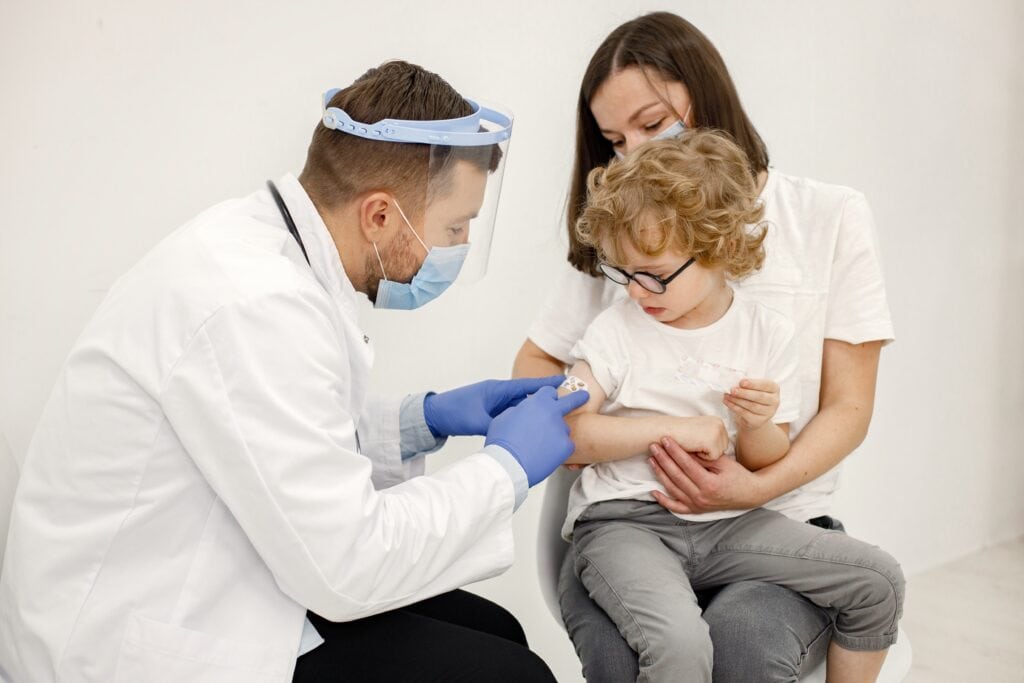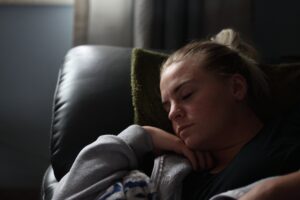Allergies are a common condition that affects millions of babies and children worldwide. For parents, it can be challenging to determine if their child is suffering from allergies, especially in infants and very young children who may not be able to communicate their symptoms. Allergy testing is a valuable tool for identifying specific allergens that trigger an allergic reaction, allowing parents and healthcare professionals to develop an appropriate treatment plan. Read below to find out when allergy testing may be recommended for babies and children, how the testing is performed, and what parents can expect during the process.
What age to test babies for allergies?
Although it is relatively rare for infants under six months old to develop allergies, babies can also get seasonal allergies, also known as allergic rhinitis or hay fever. If your baby suffers from symptoms like sneezing, itchy eyes, nose or throat, coughing, irritability or runny/stuffy nose, talk to your pediatrician for a proper diagnosis and treatment plan.
Allergy testing can be performed at any age, from infants to the elderly. However, the type of testing and the way it is performed may vary depending on the age and developmental stage of the child. Make sure you consult with a pediatrician or an allergist to determine the most appropriate type of allergy testing, based on their age, medical history, and symptoms.
How do they do an allergy test on a child?
Here are some common methods for allergy testing, which are used to test for milk allergy, peanut or other food allergies in babies and young children:
Skin prick testing
It is performed with a tiny plastic toothpick which pokes the surface of their skin, then the antigen in question is applied and left to sit on there for 15-20 minutes to see if it creates a skin reaction. A negative and positive control is also applied with any testing. Even if, for infants and young children, skin prick testing may be difficult to perform due to their small size and inability to remain still, this is the preferred and more accurate testing method.
Patch testing
This test is typically used for contact allergies, such as allergies to certain metals or chemicals. Small amounts of the allergen are placed on a patch, which is then applied to the child’s skin for 48 hours. The skin is then examined for any signs of a reaction.
Blood tests
A blood test may be used to measure the levels of specific IgE antibodies to allergens in the child’s blood, although this isn’t accurate sometimes. This test is particularly useful for children who cannot undergo skin prick testing due to skin conditions or other reasons.
Other methods used, especially in case of certain food allergies are:
Elimination diet
An elimination diet involves removing milk, peanuts or other types of food from the baby’s diet for some time to see if symptoms improve.
Oral food challenge
This test is usually done in a hospital or clinic where emergency treatment is available in case of a severe reaction. The child is given an increased amount of the suspected food allergen to see if symptoms are triggered.
When is allergy testing recommended for a child?
There is no one-size-fits-all answer to this question as it depends on the individual child’s medical history and symptoms. In general, allergy testing may be recommended if they have symptoms that suggest an allergic reaction, such as:
- Frequent sneezing, runny nose, or congestion.
- Chronic coughing or wheezing.
- Skin rashes or hives.
- Digestive symptoms such as vomiting or diarrhea after eating certain foods.
If a child has a family history of allergies, particularly if one or both parents have a history of allergies, they may also be more likely to develop allergies themselves. In this case, allergy testing may be recommended even in the absence of symptoms.
How to prepare your child for allergy testing?
Preparing a child for allergy testing can help reduce anxiety and make the experience more comfortable. Here are some tips that can help both parents and children:
Explain the procedure
Talk to your child about what to expect during the allergy testing, using simple and age-appropriate language. Explain that the test is used to find out if they have any allergies, and reassure them that the doctor or nurse will be there to help them through the process.
Stay calm
Children can pick up on their parents’ anxiety, so it’s important to stay calm and positive during the testing. Avoid using words or phrases that may make the child anxious, such as “needle” or “it will hurt.”
Follow preparation instructions
Your doctor or allergist will provide specific instructions on how to prepare your child for allergy testing, such as avoiding antihistamines for a certain period before the test (for 5-7 days before testing). Make sure to follow these instructions carefully to ensure accurate results.
Bring comfort items
Bring your child’s favorite toy, blanket, or stuffed animal to help them feel more comfortable during the testing.
Offer distractions
During the test, offer a distraction such as a book, game, or tablet to help take their mind off the testing process.
Reward afterward
After the testing is complete, offer a reward for their bravery and cooperation, such as a special treat or activity.
What is the earliest age children can have allergy shots?
The earliest age for providing allergy shots varies depending on the child’s circumstances and the type of allergy being treated. In general, allergy shots, also known as allergen immunotherapy, are not typically recommended for children under the age of 5. This is because young children may have difficulty understanding the need for the shots, and may not be able to sit still for the injection.
However, in some cases, these shots may be recommended if the child has severe allergies that are not well-controlled with medication and environmental controls. The decision to provide allergy shots to young children is made by a physician, on a case-by-case basis, after careful consideration of their medical history and allergy symptoms.
Conclusion
Allergy testing is an important tool for identifying the specific allergens that trigger allergic reactions in babies and children. While it can be a little intimidating for parents and children, the process is generally safe, and the benefits far outweigh any temporary discomfort or inconvenience.
Parents should discuss any concerns or questions they have about allergy testing with their pediatrician or an allergist to determine if it is appropriate for their child. Our team of board-certified allergy specialists are here to offer a proper diagnosis and treatment plan and help with any concerns you might have.
Contact us today with more information!



